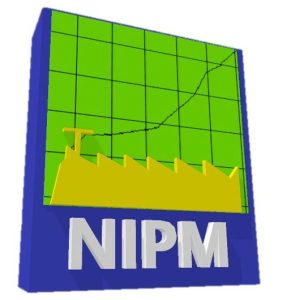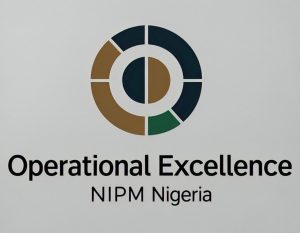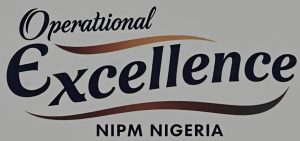Driving Operational Excellence In The Oil & Gas Sector
Operational excellence is a critical component of success in the oil and gas industry. It involves achieving exceptional performance in all aspects of operations, from drilling and production to refining and distribution.
Driving Operational Excellence In The Oil & Gas Sector

By
Dr Olaniyi Opanuga, FNIPM
Faculty Lead,
Centre for Oil and Gas Operations Management Studies (COGOMS),
Nigerian Institute of Production Management- NIPM Nigeria

1.0 INTRODUCTION
Operational excellence is a critical component of success in the oil and gas industry. It involves achieving exceptional performance in all aspects of operations, from drilling and production to refining and distribution.
1.1 DEFINITION OF OPERATIONAL EXCELLENCE
Operational excellence is a management philosophy that focuses on achieving exceptional performance in all aspects of operations. It involves:
- Continuous Improvement: Continuously improving processes, systems, and procedures to achieve exceptional performance.
- Reliability and Efficiency: Achieving high levels of reliability and efficiency in all aspects of operations.
- Risk Management: Identifying and mitigating risks to ensure safe and reliable operations.
- Collaboration and Communication: Fostering a culture of collaboration and communication among employees, contractors, and stakeholders.

1.2 BENEFITS OF OPERATIONAL EXCELLENCE
- Improved Safety: Operational excellence helps to reduce the risk of accidents and injuries.
- Increased Efficiency: Operational excellence helps to improve efficiency and reduce waste.
- Reduced Costs: Operational excellence helps to reduce costs and improve profitability.
- Enhanced Reputation: Operational excellence helps to enhance the reputation of the organization.

2.0 KEY PERFORMANCE INDICATORS (KPIs) FOR OPERATIONAL EXCELLENCE
- Safety Performance: Measured by incident rates, injury rates, and lost-time incidents.
- Reliability and Uptime: Measured by equipment reliability, uptime, and mean time between failures.
- Efficiency and Productivity: Measured by production rates, throughput, and cycle times.
- Cost and Expense Management: Measured by operating expenses, capital expenditures, and return on investment.
3.0 ROLE OF NIGERIAN INSTITUTE OF PRODUCTION MANAGEMENT (NIPM Nigeria)
NIPM Nigeria is a regulatory professional body of production and operations management in Nigeria.
The Institute is focused on advancing standards and ethical conduct that fosters operational excellence (OpEx) in Nigeria’s oil and gas industry.
3.1 OBJECTIVES OF NIPM Nigeria
- Promote Operational Excellence: Promote operational excellence in all productive sectors including Nigeria’s oil and gas industry.
- Advance Standards and Ethics: Advance standards and ethics in production and operations management.
- Develop Professional Competence: Develop professional competence in production and operations management.
- Foster Collaboration and Communication: Foster collaboration and communication among stakeholders in the oil and gas industry.
4.0 BEST PRACTICES FOR ACHIEVING OPERATIONAL EXCELLENCE
- Leadership Commitment: Leadership commitment to operational excellence is critical.
- Employee Engagement: Employee engagement and empowerment are essential.
- Continuous Improvement: Continuous improvement is a key component of operational excellence.
- Risk Management: Risk management is critical to ensuring safe and reliable operations.
- Collaboration and Communication: Collaboration and communication among employees, contractors, and stakeholders are essential.
5.0 CHALLENGES IN ACHIEVING OPERATIONAL EXCELLENCE
- Complexity of Operations: Oil and gas operations are complex and involve many variables.
- Regulatory Requirements: Regulatory requirements can be complex and challenging to navigate.
- Cost Pressures: Cost pressures can make it challenging to invest in operational excellence initiatives.
- Talent Management: Attracting and retaining top talent can be challenging.

6.0 EXECUTIVE SUMMARY
Operational excellence is critical to success in the oil and gas industry. NIPM Nigeria plays a vital role in promoting operational excellence, advancing standards and ethics, and developing professional competence in production and operations management.
By focusing on continuous improvement, reliability and efficiency, risk management, and collaboration and communication, organizations can achieve operational excellence and improve safety, efficiency, and profitability.
6.1 RECOMMENDATIONS
- Develop an Operational Excellence Strategy: Develop a strategy that outlines the organization’s commitment to operational excellence.
- Establish Key Performance Indicators (KPIs): Establish KPIs that measure safety, reliability, efficiency, and cost.
- Invest in Employee Training and Development: Invest in employee training and development to ensure they have the necessary skills and knowledge.
- Foster a Culture of Continuous Improvement: Foster a culture of continuous improvement that encourages employees to identify and implement improvements.
7.0 PRINCIPLES OF OPERATIONAL EXCELLENCE
Operational excellence is a philosophy that emphasizes the need for organizations to continuously improve their processes and systems to achieve superior performance. The principles of operational excellence include:
- Customer Focus: Understanding customer needs and expectations and aligning organizational processes t meet those needs.
- Continuous Improvement: Encouraging a culture of continuous improvement, where employees are empowered to identify and solve problems.
- Employee Engagement: Engaging employees in the improvement process and recognizing and rewarding their contributions.
- Process Excellence: Designing and implementing efficient and effective processes that meet customer needs.
- Performance Metrics*: Establishing clear performance metrics to measure progress and identify areas for improvement.
- Accountability: Holding employees and leaders accountable for achieving operational excellence.
- Collaboration: Fostering collaboration across functional boundaries to achieve common goals.
7.1 BASIC TENETS OF OPERATIONAL EXCELLENCE
The basic tenets of operational excellence include:
- Standardization: Standardizing processes to reduce variation and improve efficiency.
- Simplification: Simplifying processes to reduce complexity and improve clarity.
- Streamlining: Streamlining processes to reduce waste and improve flow.
- Visualization: Visualizing processes to improve understanding and identify areas for improvement.
- Root Cause Analysis: Analyzing problems to identify and address root causes.
- Continuous Learning: Encouraging a culture of continuous learning, where employees are empowered to learn from mistakes and improve processes.
- Leadership Commitment: Demonstrating leadership commitment to operational excellence through clear communication, resource allocation, and accountability.
8.0 HOW WORLD-CLASS ORGANIZATIONS ACH IEVE OPERATIONAL EXCELLENCE.
World-class organizations achieve operational excellence by:
- Aligning Strategy and Operations: Aligning operational processes with strategic objectives.
- Building a Culture of Excellence: Building a culture that values excellence, innovation, and continuous improvement.
- Investing in Employee Development: Investing in employee development to build skills and knowledge.
- Implementing Lean and Six Sigma Methodologies: Implementing lean and Six Sigma methodologies to improve efficiency and reduce waste.
- Utilizing Data-Driven Decision Making: Utilizing data-driven decision making to inform operational decisions.
- Fostering Collaboration and Communication: Fostering collaboration and communication across functional boundaries.
- Continuously Monitoring and Evaluating Performance: Continuously monitoring and evaluating performance to identify areas for improvement.
9.0 ACHIEVING OPERATIONAL EXCELLENCE WITH NIPM
Nigerian Institute of Production Management (NIPM Nigeria) provides the required props organizations need to achieve operational excellence through:
■ High-quality education and training programs
■ Certification programs, including Certified Operational Excellence Professional (COEP)
■ Diploma, Advanced Diploma, and Postgraduate Diploma (PGD) programs in Operational Excellence
■ Membership programs that provide access to resources, networking opportunities, and professional development
By partnering with NIPM, organizations can gain the knowledge, skills, and competencies required to achieve operational excellence and improve their overall performance.
CONTACT US:
For more information on NIPM’s operational excellence programs, please contact us:
Tel./WhatsApp: 08023140750, 08069006671.
For Training & Membership
The Registrar
Nigeria Institute of Production Management
Acme House, 23, Acme Road,
Ogba Industrial Estate,
P.O. Box 7798, Ikeja, Lagos, Nigeria
Tel: 08023140750

Leave a Reply